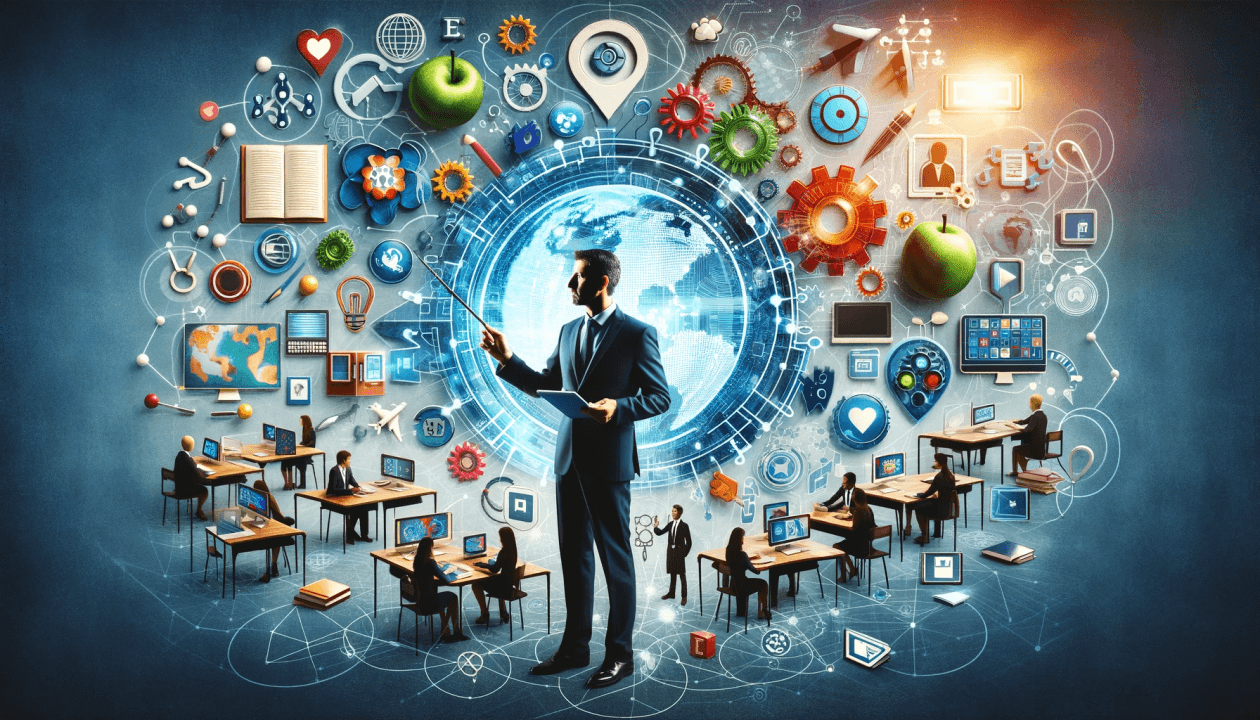The integration of Artificial Intelligence (AI) into educational technology (EdTech) has marked a significant turning point in how education is delivered and experienced across the globe. AI-based learning platforms have revolutionized the EdTech landscape by offering more personalized, accessible, and efficient learning experiences. Here’s an in-depth look at how AI has changed EdTech:
Personalized Learning Experiences
One of the most impactful changes brought by AI in EdTech is the ability to provide personalized learning experiences. AI algorithms analyze students’ learning habits, strengths, weaknesses, and preferences to tailor educational content accordingly. This customization ensures that each learner receives instruction that is most suitable for their individual learning style, helping to improve engagement and outcomes.
For example, platforms like NeuralMinds use AI to dynamically adjust the difficulty of lessons, suggest additional resources, and even predict and address areas where students might struggle. This level of customization was unthinkable before AI, where most educational resources were static and generalized.
Enhanced Accessibility
AI has significantly enhanced the accessibility of education. Language translation features and voice-to-text capabilities allow students from different linguistic backgrounds and those with disabilities to access educational materials more easily. AI-driven applications can adapt to the needs of learners with disabilities by modifying content presentation according to individual accessibility requirements.
Furthermore, AI facilitates the global reach of education, breaking down geographical barriers. Students in remote or underserved areas can now access the same quality of education as those in urban centers, thanks to AI-powered online learning platforms.
Automated Administrative Tasks
AI has streamlined many administrative tasks that traditionally consumed substantial time and resources. This includes tasks like grading, scheduling, and student assessments. By automating these processes, educators are freed up to focus more on teaching and less on administrative duties. AI can quickly analyze tests and assignments, providing insights into student performance and areas needing attention.
Real-Time Feedback and Assessment
With AI, feedback can be instant and formative. AI-based systems provide students with real-time corrections and feedback, which is crucial for learning complex subjects such as mathematics or languages. This immediate feedback loop helps students understand their mistakes and correct them promptly, reinforcing learning effectively.
Additionally, AI-driven analytics tools can assess student interactions and learning patterns to provide educators with detailed insights into the effectiveness of teaching methods and materials.
Scalable Learning Solutions
AI enables the scaling of personalized learning solutions that can cater to thousands or even millions of students simultaneously without diminishing the quality of education. Massive Open Online Courses (MOOCs) powered by AI can handle vast amounts of data from students worldwide, providing personalized experiences to all.
Predictive Analytics
AI helps in predicting future learning outcomes and student performance based on historical data. This predictive capability allows educators to intervene proactively, helping students who are predicted to struggle. It also helps in curriculum development, as educational content can be tailored to better meet the anticipated needs and challenges of future learner cohorts.
Continuous Learning and Professional Development
AI not only supports traditional academic learning but also facilitates continuous professional development and lifelong learning. AI platforms can suggest courses and learning paths that align with career advancement goals, keeping professionals updated with the latest skills and knowledge in their field.
Interactive Learning Environments
AI technology has enabled the creation of highly interactive and engaging learning environments. Through the use of virtual and augmented reality, powered by AI, students can experience immersive learning scenarios that would be impossible in a traditional classroom setting. These interactive experiences make learning more engaging and memorable.
Data-Driven Decision Making
With AI, educational institutions can make data-driven decisions regarding curriculum adjustments, resource allocations, and student support services. AI systems analyze vast amounts of data from student interactions and performance to identify trends and predict needs, allowing for more informed and effective decision-making.
Global Learning Communities
AI facilitates the formation of global learning communities by connecting students from various parts of the world in virtual classrooms. These AI-enabled platforms offer translation features and cross-cultural interaction opportunities, helping students from different backgrounds collaborate and learn from each other.
Conclusion
The integration of AI into educational technology has transformed traditional educational paradigms, making learning more personalized, accessible, and efficient. As AI technology continues to evolve, its impact on EdTech will likely grow, further revolutionizing how education is delivered and experienced. This ongoing transformation promises to make learning more aligned with individual needs and global challenges, preparing students and professionals better for the future.

